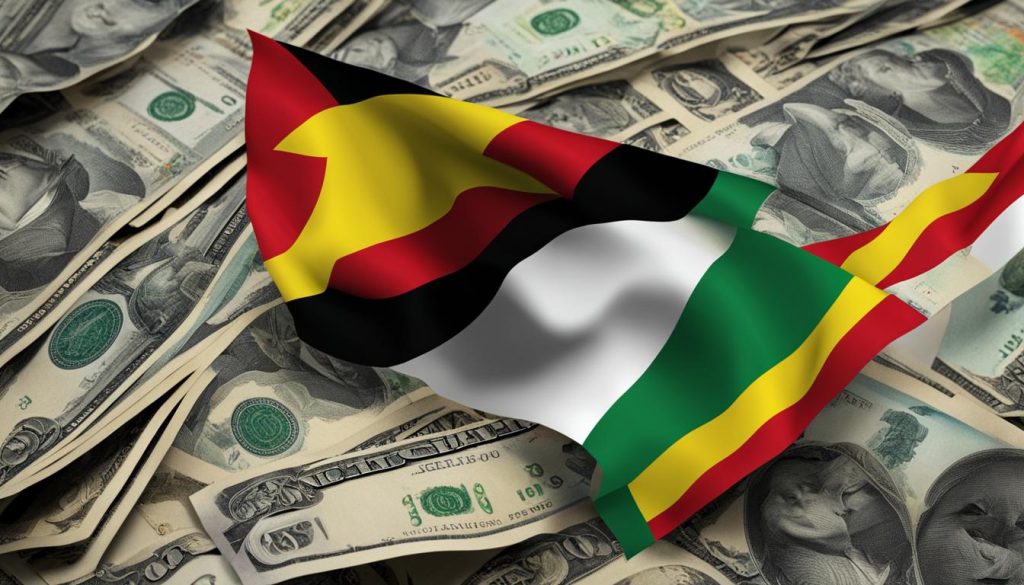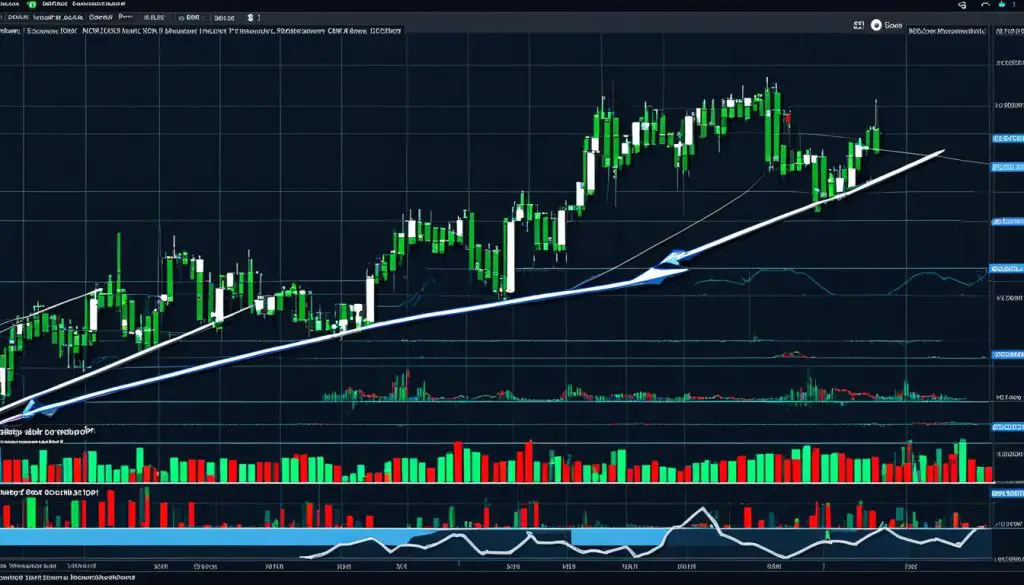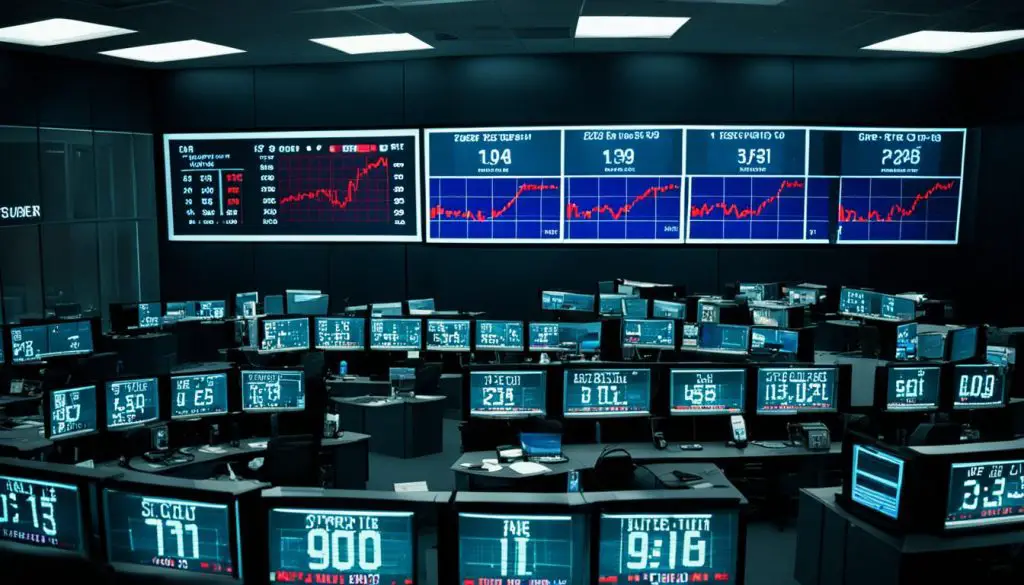Delving into the heart of Ghana’s burgeoning financial sector, investors and individuals alike pose the question: is forex trading legal in Ghana? While Ghana’s digital economy continues to stride towards notable growth, the sector of forex trading surfaces with a myriad of questions concerning its legality and governance. With a focus on both protection of investors and a burgeoning market’s evolution, understanding the forex trading laws in Ghana becomes imperative for those looking to navigate its promising yet intricate waters.
As part of a larger foreign exchange market that falls under the regulatory eye of the Bank of Ghana, forex trading coexists in a scenario where formal regulations specific to retail trading are yet to be established. This nascent state of affairs does not imply illegality but denotes a lack of tailored legislation, leaving room for discussions on shaping a regulatory framework to govern this financial activity adequately. A closer look at the current practices and norms reveals that while transactions and forex account operations within local banks remain under scrutiny, an open market exists for importers who are granted some extent of latitude in their foreign exchange endeavors.
Understanding the ghana forex trading legality, it is essential to recognize the current dynamics and statutory requirements imposed by existing financial institutions. By shedding light on these legal considerations, investors and traders can maneuver with increased certainty and compliance, ensuring that their economic pursuits align with the national financial directive and the grander vision of Ghana’s digital economic landscape.
Understanding Forex Trading in Ghana
As Ghana strides into an era of digital economic expansion, the foundation for Forex trading has been markedly laid out, driven by infrastructural advancements alongside a growing middle class. The allure of financial markets has seen a swell in interest among Ghanaians, who are increasingly dabbling in Forex trading as a means to enhance their financial portfolios. While the digital architecture exists to support traders, it operates largely unregulated, as there are no concrete forex trading regulations in Ghana governing retail trading. Instead, traders in Ghana find themselves in a dynamic space, connecting with global Forex Brokers offering advanced trading services.
Forex Brokers accessible to Ghanaian traders are ushering in a suite of features such as proprietary platforms, social trading opportunities, and competitive raw spreads. Catering to a variety of trading strategies, these platforms aim to service the needs of Ghana’s traders. Despite their availability, these international brokers do not fall under any local regulatory body, raising questions about the level of oversight and protection for traders in the nation. This current landscape underscores a pressing need for the establishment of forex trading restrictions in Ghana to create a safeguarded environment for participants in this financial sphere.
- Proprietary Trading Platforms
- Social Trading Networks
- Competitive Spreads and Trading Instruments
While the Ghanaian market grapples with this absence of local oversight, traders have been seamlessly engaging with these global entities, learning and earning in the same vein as their international counterparts. It is important for Ghanaian traders to recognize the importance of diligence and research when choosing a Forex broker, considering factors such as reputation, regulatory status, and the range of services offered.
It is essential to comprehend that the realm of Forex is vast and complex, especially in a country where regulations are yet to solidify. Ghana currently stands at a crossroads, potentially on the cusp of introducing local guidelines that could transform its Forex trading industry into a more structured and dependable sector. Until such time, Ghanaian traders must navigate the market with prudence, armed with knowledge and a meticulous approach to broker selection.
Is Forex Trading Legal in Ghana?
The discourse surrounding the forex trading legality in Ghana elicits a range of questions and concerns from prospective traders and financial experts alike. While the current legal milieu may seem ambiguous to some, it’s essential to delineate the nuances pertaining to what is allowed and what the future might hold for such financial activities within the country.
Current Legal Framework for Forex Trading
In the existing legislative panorama, no concrete laws specifically target retail forex traders. This implies that while there is no overt sanction against such activities, the absence of regulation creates a vacuum of legal assurance. Individuals considering engaging in Forex trading within Ghana’s borders do so in a space that is unregulated but not expressly forbidden. In essence, is forex trading allowed in Ghana? Yes, but with the understanding that it operates outside the boundaries of any formal regulatory oversight.
Prospective Regulatory Changes and Proposals
The landscape may soon encounter significant changes with the Securities and Exchange Commission (SEC) of Ghana and the Bank of Ghana’s ongoing considerations to introduce necessary measures for regulation. This prospective regulatory framework is anticipated to cultivate a protective environment for traders by potentially implementing a licensing system for forex brokers and ensuring better market liquidity. These changes signal a commitment to the formalization of forex trading in Ghana legality, addressing critical issues of foreign currency preservation and market efficiency.
Discussions in 2020 highlighted the SEC’s approach in involving trading professionals in the development of these imminent laws. The aim is not only regulatory but also educative, as setting up local FX trading offices would increase awareness and understanding of the Forex market amongst Ghanaians. This dialogue is a harbinger of more structured and secure Forex trading practices likely to unfold in the nation.
Thus, the intricate matter of forex trading legality in Ghana is at an inflection point, with the collective vision of authorities and traders leaning towards a future where clarity, regulation, and growth converge.
The Growth of Forex Trading in West Africa and Ghana’s Position
As the worldwide forex market has ballooned to staggering daily volumes, Africa has been a noteworthy contributor with significant engagement from its traders. The landscape of forex trading in West Africa is particularly intriguing, with Ghana burgeoning as a prominent member of this community. The exponential growth highlights not only the potential for economic progress but also underscores the importance of establishing steadfast forex trading regulations in Ghana.
Forex Market Global Expansion and Its Impact in Africa
The vast expansion of the global forex market has not left Africa behind. With an estimated 1.8 million online retail forex traders stemming from the continent, Africa’s influence in the world’s financial markets is apparent. This uptick in trading activity is powered by increased internet penetration, the accessibility of trading platforms, and high-leverage opportunities that attract a burgeoning number of African retail investors.
Ghana’s Forex Trading Community and Comparison with Other African Countries
In Ghana, which hosts around 35,000 active forex traders, the intrigue of forex trading is palpable despite lacking stringent local regulations. This has led to a dependency on offshore brokers, and consequently, a significant outflow of forex capital. Comparing Ghana to the likes of Nigeria, South Africa, and Kenya reveals a relative disparity in trader numbers that signals room for growth—growth that can be facilitated and securely managed under the right regulatory framework.
With questions on whether forex trading is legal in Ghana being pivotal to the community’s development, the call for clear regulations becomes increasingly urgent. The harmonization of forex market growth with necessary legal oversight would protect traders and enhance Ghana’s position as a competitive force in the West African region.
| Country | Active Forex Traders | Regulatory Framework Presence |
|---|---|---|
| Nigeria | 200,000 | Established |
| South Africa | 190,000 | Robust |
| Kenya | 70,000 | Developing |
| Ghana | 35,000 | Minimal/In Progress |
The comparison accentuates the significance of advancing forex trading regulations in Ghana to safeguard the community’s interests. It stresses the necessity for an environment that not only allows traders to thrive but ensures their activities contribute positively to the nation’s economic landscape.
Choosing Forex Brokers and Platforms in Ghana
The terrain of Forex trading within Ghana demands vigilance, particularly when selecting a brokerage. In a landscape where the forex legality in Ghana hinges on international rather than local oversight, the traders’ prudence is their safeguard. Investigating a broker’s reputation in the global market and their compliance with international forex trading regulations in Ghana ensures a secure trading experience for Ghanian investors.
Considerations for Ghanaian Traders When Selecting a Broker
Several key considerations must be at the forefront for any Ghanaian trader before committing to a Forex broker. These include:
- Reviewing the broker’s historical performance and reliability
- Evaluating regulatory credentials managed by top-tier international regulators like ASIC, CySEC, and FCA
- Comparing trading costs to ensure they align with the trader’s financial strategy
- Assessing the variety of trading instruments offered
- Examining the execution quality which can impact trade outcomes
- Investigating the broker’s capacity to provide accurate market information and analysis
- Probing the availability and quality of educational resources for trader development
The Role of International Regulatory Bodies for Ghanaian Traders
In the absence of local forex trading regulations in Ghana, the importance of international regulatory bodies becomes paramount for Ghanaian traders. The stringent rules laid out by the ASIC, FCA, and CySEC offer a form of protection, enforcing transparency and financial solvency, essential in the volatile realm of Forex trading. Traders from Ghana must navigate the trading waters with great care, confirming the authenticity of the broker’s regulator to ensure the security of their investments.
| Regulatory Body | Region | Key Regulations | Relevance to Ghanaian Traders |
|---|---|---|---|
| Australian Securities and Investments Commission (ASIC) | Australia | Enforces strict audit requirements, capital controls, and client protection mechanisms | Ensures financial stability and protection for traders engaging with Australian brokers |
| Cyprus Securities and Exchange Commission (CySEC) | Cyprus/EU | Implements investor compensation schemes and funds segregation directives | Offers a safety net against broker insolvency, critical for traders looking for EU-regulated brokers |
| Financial Conduct Authority (FCA) | United Kingdom | Mandates rigorous financial reporting and consumer protection policies | Provides a high standard of regulatory oversight, inspiring confidence in UK-based brokers |
Ghanaian traders must exercise due diligence, approaching the global Forex market with a strategic filter, prioritizing regulatory compliance above all else. As the global Forex industry continues to evolve, the Ghanaian investor remains hopeful that local frameworks will soon rise to provide greater stability and transparency in the burgeoning domestic market.
Conclusion
In the ever-evolving landscape of Forex trading in Ghana, individuals are engaging in currency exchange without the safeguard of local regulatory frameworks. This presents inherent challenges, as market participants face potential exposure to financial malpractices and fraud. The interim solution for Ghanaian traders is to affiliate themselves with globally recognized and regulated brokers that have established a verifiable commitment to fair trading practices and client security.
Implications and Recommendations for Ghanaian Forex Traders
Practitioners of the craft in Ghana must therefore exercise due diligence, prioritizing platforms that have earned robust regulatory accreditation. Such prudence is not just a recommendation but a necessity in mitigating risk. Locals keeping abreast of forex trading laws in Ghana and any prospective legal changes is vital—being well-informed equates to being well-armed in the currency trading arena.
Looking Ahead: How Future Regulations Could Shape Forex Trading in Ghana
The horizon hints at promising developments, as pending forex trading regulations in Ghana aim to solidify the infrastructure of the market. Anticipated formal regulatory measures seek to diminish unnecessary capital flight while inviting the establishment of licensed operational bases for brokers in-country. This future, infused with regulatory clarity and oversight, promises to fortify Ghana’s position as a principal player in the Forex market within the region, fostering a secure investment environment. As these forex trading regulations in Ghana take shape, they are set to usher in a new era of growth and confidence, paving the way for the nation to harness its full potential as a digital economic pioneer in Africa.
FAQ
Yes, Forex trading is legal in Ghana; it operates in an unregulated yet permissible space where no legal frameworks specifically govern retail Forex trading. However, due to the absence of regulated local brokers, traders usually work with international platforms.
Currently, Ghana does not have a specific legal framework for retail Forex trading. The broader foreign exchange market is regulated by the Bank of Ghana, which oversees foreign exchange bureaus. Retail traders must comply with international brokers’ regulations that are outside local jurisdiction.
Yes, prospective regulations for Forex trading in Ghana are under consideration. The Securities and Exchange Commission of Ghana, in coordination with the Bank of Ghana, is reported to be working on a framework for licensing Forex brokers locally.
International regulatory bodies like ASIC, FCA, and CySEC impose strict regulations on Forex brokers which can offer some protection to Ghanaian traders, such as mandated KYC practices and financial responsibility. Traders must ensure the brokers they use comply with these international regulations.






